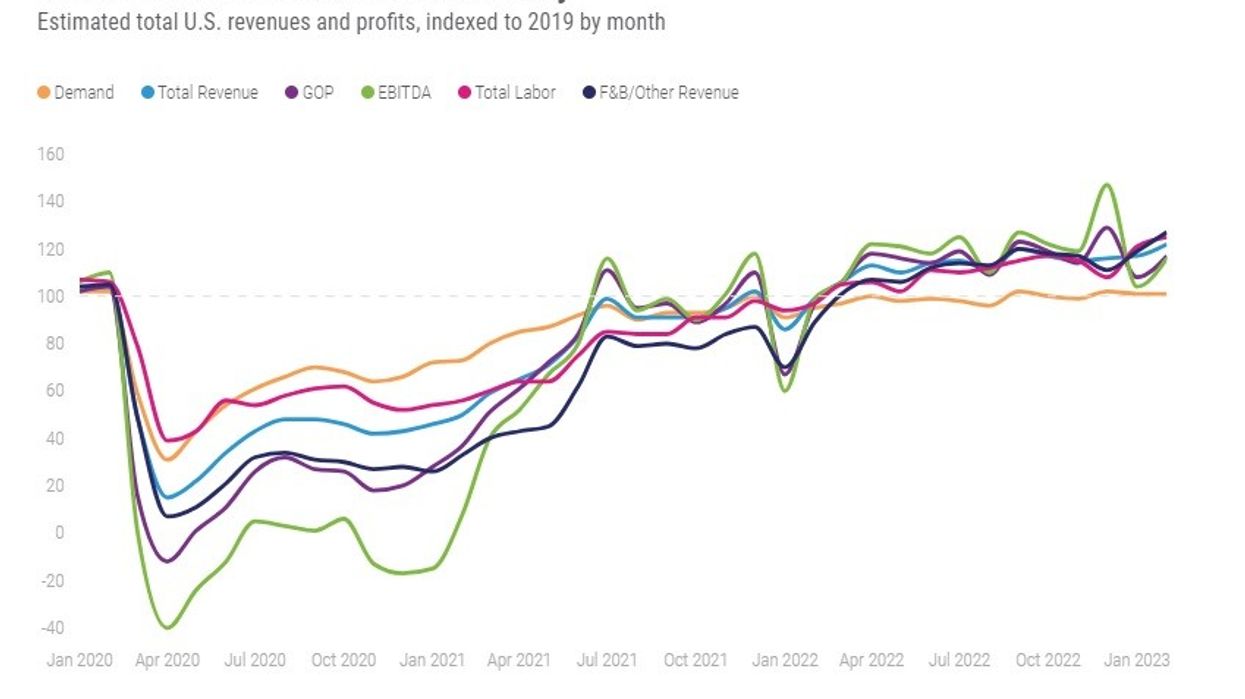GOPPAR FOR U.S. hotels in February exceeded the levels of the pre-pandemic comparable time period and was the highest since October 2022, according to STR’s February 2023 Profit & Loss data. EBITDA was the only key bottom-line metric on a per-available-room basis to come in lower than February 2019, STR said in a statement.
GOPPAR reached $77.37 for the month, up 1.6 percent over the same month in 2019, TRevPAR stood at $217.20, up 3.7 percent, and EBITDA PAR was $51.63, down 0.6 percent against February 2019. Labor costs were $73.70, a 2.9 percent increase.
“The profit-and-loss metrics followed typical industry trends, improving from the prior month,” said Raquel Ortiz, STR’s director of financial performance. “Both GOPPAR and GOP margins were the highest since last fall, while profit margins came in just one percentage point below 2019. Profit margins for limited-service hotels are further behind in recovery than full service, likely due to increasing labor costs that bear heavier weight on the bottom line.”
“An increase in top-line group demand is beginning to show in the bottom line, as catering and banquet revenues are inching closer to 2019 levels and meeting space rentals and services charges surpassed that threshold. On a per-operating-room basis, nearly all F&B revenues outpaced the pre-pandemic comparables,” Ortiz added.
Of the major markets, 10 realized both GOPPAR and TRevPAR levels higher than the 2019 comparables, the statement said.
“February was a slower month for markets that are more dependent on groups and conventions, such as Atlanta, San Francisco and Minneapolis,” Ortiz further said. “Warmer markets have remained at the top, with Phoenix showing the highest TRevPAR recovery and second highest GOPPAR recovery for the month, helped by peak season and Super Bowl LVII.”
In the fourth week of March, U.S. hotel performance decreased from the week before, according to STR. Occupancy was 64.9 percent for the week, down from 67.6 percent the week before and 0.6 percent down than the comparable week in 2002 and 6.3 percent down the comparable week in 2019.






